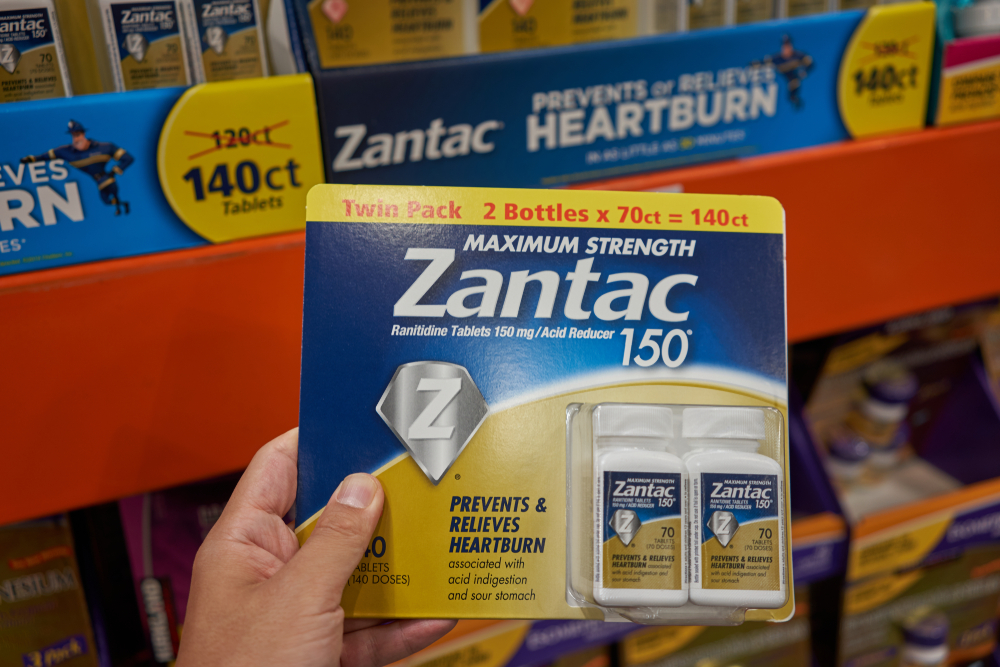One of the most widely produced chemicals in the United States, benzene, is a known carcinogen. Despite the fact that it has proven to cause cancer, it remains in use across dozens of industries. While the production and use of benzene is strictly regulated by the government, the maximum exposure limits that have been mandated appear to be too high to ensure workers’ safety.
If you or someone you love was diagnosed with a blood-related cancer and you think exposure to benzene was to blame, your family may have grounds for legal action. While filing a personal injury or wrongful death suit won’t undo the diagnosis, it could at least yield the funds needed to rebuild your lives during such a stressful time.
To see if you have grounds for a claim, fill out our form, and we’ll evaluate your claim and potentially connect you with an experienced attorney in your area.
- What Is Benzene?
- What Should I Do if I Have Been Affected by Benzene?
- How Do I Know if I Qualify to Be Part of a Benzene Lawsuit?
- How Does a Benzene Lawsuit Work?
- Do I Need Legal Counsel to Join a Benzene Lawsuit?
- How Long Does It Take to Resolve a Benzene Lawsuit?
- What Is the Statute of Limitations for a Benzene Lawsuit?
- How Much Can You Recover From a Benzene Lawsuit?
- How Long Does It Take to Receive the Funds After Resolving a Lawsuit?
- Final Thoughts
What Is Benzene?
Sometimes colorless and sometimes light yellow, benzene is a liquid at room temperature. It has a sweet odor, evaporates quickly, and is highly flammable. Since its vapor is heavier than air, it tends to sink after evaporating, but it can float on top of water.
Benzene can be found in nature, but it can also be manufactured. It’s used across a host of industries to make everything from nylon and rubber to drugs and detergent.
Because benzene is so prevalent, most people are exposed to the small levels of the chemical on a fairly regular basis. The air outside contains low levels of benzene from industrial emissions, vehicle exhaust, and tobacco smoke, for example, while the air inside might contain benzene from furniture wax, detergent, and paint.
If benzene leaks out of underground storage tanks or seeps from hazardous waste sites, it can contaminate the nearby well water. Naturally, this poses considerably more risk than the low levels of benzene that are naturally present in the air.
It’s people who work in industries that use benzene, though, who are exposed to the highest levels of this carcinogen. As such, they’re the ones who have the greatest risk of developing cancer from it.
Benzene exposure can cause a number of health problems. Short-term issues include dizziness, drowsiness, tremors, confusion, vomiting, and rapid or irregular heartbeat. The most common long-term health effects, on the other hand, impact the blood. Benzene can hinder the production of red blood cells, which will lead to anemia. It can also affect antibody and white blood cell levels, thereby damaging immune function.
Over the past 30 years, several multimillion-dollar judgments have been awarded to individuals (or their surviving loved ones) because of health complications following excessive exposure to benzene. The kinds of cancers that have frequently been named in benzene-related lawsuits include:
- Chronic lymphocytic leukemia
- Acute lymphocytic leukemia
- Chronic myeloid leukemia
- Acute myeloid leukemia
- Non-Hodgkin lymphoma
- Multiple myeloma
These suits are typically brought against large industrial employers for failing to implement adequate measures to protect their workers from benzene exposure. The U.S. Occupational Safety and Health Administration (OSHA) has enacted regulations that limit workplace exposure to 1 part-per-million (PPM) of benzene over the course of an 8-hour shift. Short-term exposure is limited to 5 ppm over a 15-minute period.
Unfortunately, not all employers abide by these regulations—and even if they did, there’s no guarantee that their workers would be okay. Researchers at the National Cancer Institute have found that there may not be any safe level of benzene exposure. A 2004 study revealed that factory workers in China developed bone marrow issues—the kind that often precedes cancer—despite being exposed to levels of benzene that have been deemed “safe” in the United States.
Researchers Begin Linking Benzene to Cancer
Benzene was linked to leukemia at least as early as 1948—and companies have known this. A former attorney for Shell released a report to serve as a reference for other corporate lawyers facing benzene litigation. In this document, he acknowledged the fact that scientific literature has connected benzene to an increased risk of cancer. He went on to instruct other attorneys, however, to only disclose sensitive documents that indicate that they knew this after receiving a court order to do so.
Sadly, refusing to hand over critical documents is the least of some companies’ transgressions. The Center for Public Integrity has alleged the entire oil industry went to great lengths to bury legitimate studies that demonstrated an increased risk of cancer from even minimal exposure to benzene. The nonprofit investigative group came to their conclusion after reviewing 20,000 internal memos.
Despite acknowledging the fact that the only safe concentration of benzene exposure is zero, the American Petroleum Institute (API) challenged the 1 ppm regulation that OSHA wanted to impose.
The legal battle lasted for nearly a decade and proceeded to the U.S. Supreme Court before OSHA won.
Although the API fought the hardest—and allegedly spent upwards of $35 million on biased research in the hopes of keeping regulations to a minimum to protect its members’ interests—oil rig and pipeline workers are not the only ones who are exposed to benzene every day. Other professionals who face excessive exposure over the course of their career include:
- Barge and dock workers
- Mechanics
- Painters
- Paper workers
- Plumbers
- Pipefitters
- Rubber workers
- Truck drivers
Patients Begin Filing Benzene Lawsuits
When someone who was exposed to benzene at work is diagnosed with a blood cancer, he or she may be entitled to compensation for the associated damages. Chances are his or her employer failed to take reasonable measures to protect employees or to meet OSHA’s standards regarding workplace exposure.
One of the earliest benzene-related suits was resolved in 1991. Otis Mason was an instructor in the Coast Guard who was exposed to benzene about a dozen times in the 1970s. He died from leukemia in 1979. A federal judge awarded $34 million to his widow in 1990. The defendant, Texaco Inc., appealed the verdict, and the award was reduced to $21 million, which the widow accepted in 1991.
Other notable verdicts and settlements over the years have included:
- $21.4 million to the families of two deceased brothers who worked in a tire factory for decades
- $6.3 million to an auto mechanic and painter who was diagnosed with myelodysplastic syndrome
- $824,000 to a man who was diagnosed with acute myeloid leukemia after working with printing solvents
- $8.2 million to a man who was diagnosed with acute myeloid leukemia following exposure to various paint products
- $7.5 million to the family of a man who drove a gasoline tanker for six years and died from myelodysplastic syndrome
- $4.83 million to residents of Roxana, IL, after Shell and ConocoPhilips contaminated their water through 18 spills over 25 years
What Should I Do if I Have Been Affected by Benzene?
If you or someone you love was diagnosed with a blood cancer and you think benzene exposure may be to blame, fill out the form on our website. We’ll review your claim and connect you with a reputable attorney in your area.
The sooner you consult a lawyer, the sooner you can take action if it turns out you or your family have grounds for a claim. In the meantime, save all relevant documentation regarding the cancer treatment, including medical records, diagnostic images, and bills and receipts for all related expenses.
How Do I Know if I Qualify to Be Part of a Benzene Lawsuit?
Since every benzene-related lawsuit is unique—and legal proceedings are inherently complicated—there’s no single question you can ask to determine if your family might be entitled to compensation.
The easiest way to see if filing a suit may be worthwhile is by consulting a personal injury attorney. A knowledgeable professional will evaluate the circumstances surrounding the exposure and subsequent diagnosis. If it appears that the damages could have been prevented had one or more parties taken reasonable measures, you may qualify to be part of a benzene lawsuit.
How Does a Benzene Lawsuit Work?
If you end up filing a benzene lawsuit, you can expect your case to follow at least a portion of these proceedings:
- Conducting the initial investigation
- Sending the liable party a demand letter accompanied by evidence
- Reviewing the liable party’s response
- Commencing negotiations
- Filing a formal petition in court
- Conducting discovery
- Attending mediation
- Going to trial
- Filing or defending against an appeal
Cases that are ultimately settled—which make up the majority of all legitimate claims—typically don’t proceed beyond the negotiation stage (though some are settled during mediation). Only a small number of cases actually go all the way to court—and an even smaller percentage of those that do are eventually appealed.
Do I Need Legal Counsel to Join a Benzene Lawsuit?
While it’s certainly possible to represent yourself during a benzene lawsuit, doing so is inadvisable. The parties in such suits have enough resources to challenge all the claims that come their way. That means you’ll have to present sufficient evidence of both liability and damages just to make it past the initial demand stage. You have enough to worry about without reviewing studies, tracking down experts, and interviewing medical specialists.
If you’re still wary of retaining legal counsel because you don’t think you have the funds for such services, think again. By filling out our form, if your we’ll evaluate your claim and if it’s valid we’ll connect you with a reputable firm that charges clients on a contingency fee basis. That means their fee comes out of the final settlement or judgment—and if the case doesn’t yield a payout, they don’t charge a fee at all.
How Long Does It Take to Resolve a Benzene Lawsuit?
Most families that file benzene lawsuits are in a dire financial position. Even with adequate health insurance, after all, cancer treatments are incredibly expensive. There are also indirect expenses to consider, like lost wages. As such, it’s natural for claimants to hope for a fast resolution to their case.
Unfortunately, resolving such suits can take months—or even years. At the end of the day, there are a variety of factors that can influence the duration of the proceedings. Examples include the complexity of the case, the strength of the evidence presented, the number of liable parties, and the severity of the damages.
What Is the Statute of Limitations for a Benzene Lawsuit?
If you think you might have grounds for legal action following exposure to benzene, it’s wise to seek legal counsel as soon as possible. Every state has strict filing deadlines for personal injury lawsuits.
Called statutes of limitations, these deadlines typically range from one to six years. Should you attempt to bring a suit after the applicable deadline has passed, the judge will likely dismiss your case. In other words, you’ll have no financial recourse.
How Much Can You Recover From a Benzene Lawsuit?
While several multimillion-dollar judgments have been awarded, every case is different. What’s more, legal proceedings are unpredictable. That means even if you were diagnosed with the same disease as someone who recovered a seven-figure payout, you’re not necessarily entitled to the same kind of settlement verdict. Depending on the circumstances, you might be able to recover considerably more—or considerably less.
At the end of the day, the total value of your claim will depend on a number of factors. Examples include your prognosis, the severity of all associated losses, and the steps you took—or failed to take—to mitigate damages.
How Long Does It Take to Receive the Funds After Resolving a Lawsuit?
Following a successful suit, most plaintiffs receive their funds within several weeks. As long as the defendant is cooperative and does not attempt to appeal the verdict, they should give compensation to the plaintiff’s legal team in a timely manner. The firm will then take care of all outstanding obligations, like healthcare liens and attorney’s fees, before distributing the remaining funds to the client.
Final Thoughts
If you or someone you love was diagnosed with a form of cancer that could have been caused by benzene exposure, fill out our form. After a few quick questions we’ll connect you with a compassionate attorney who can help you determine how best to pursue the compensation you deserve.





